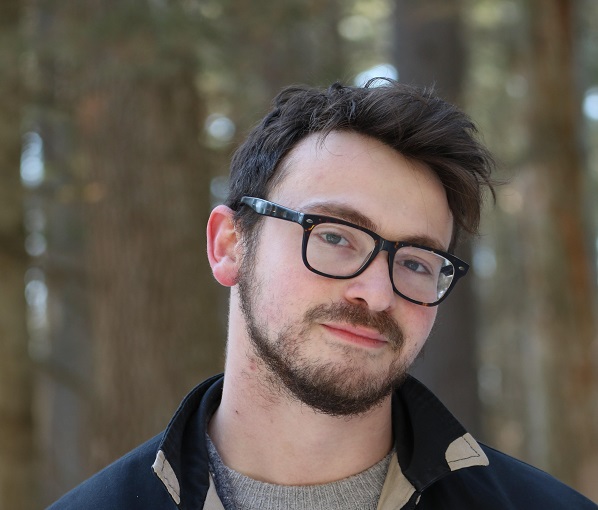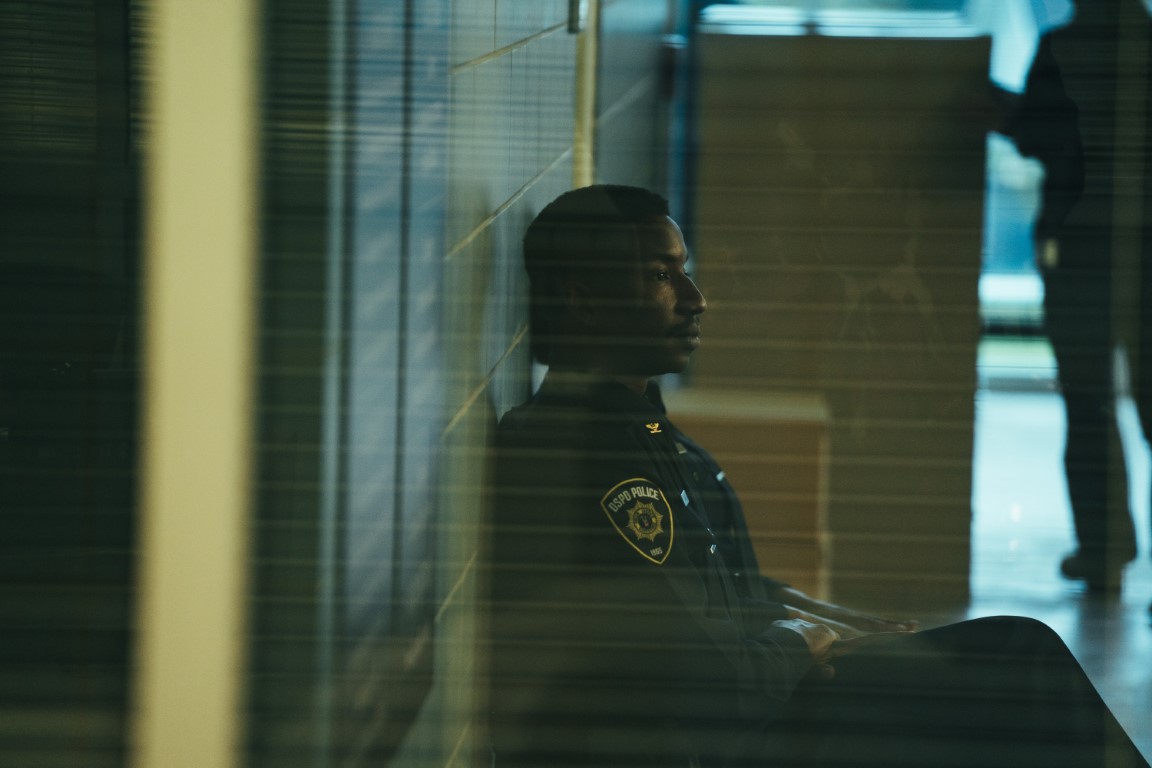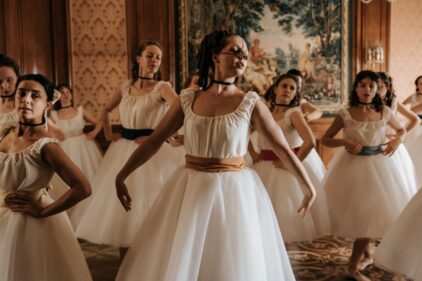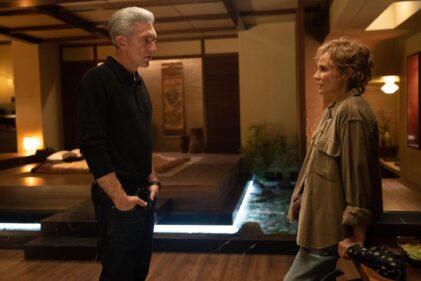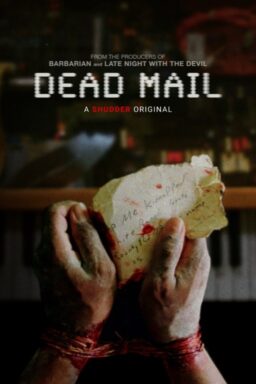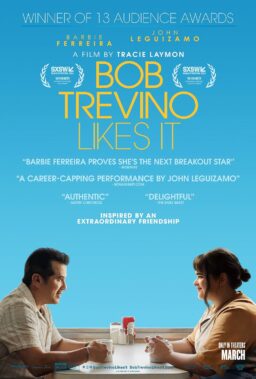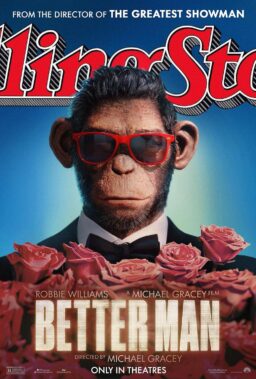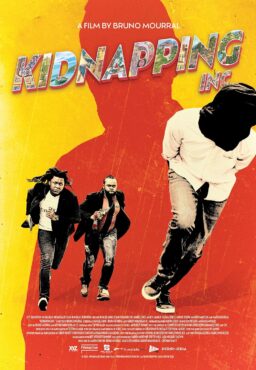Mamoudou Athie is making his own luck.
“I’ve realized the necessity of being in charge of your professional destiny,” explains the actor from a suite at the Hotel Carlton Intercontinental amid the bustle and heat of the 77th annual Cannes Film Festival. “I’ve realized the importance of not waiting by the phone,” he adds. “You have to create for yourself.”
It’s Athie’s second consecutive summer in the south of France, which would have any actor on the rise in a reflective mood. Last year, he led the voice cast of Pete Sohn’s “Elemental,” which closed the festival, and Athie’s now back at Cannes with “Kinds of Kindness,” an unnervingly ersatz triptych from Yorgos Lanthimos, the Greek provocateur behind such absurd, brutal oddities as “Dogtooth,” “The Lobster,” and “The Killing of a Sacred Deer.”
As part of a stacked ensemble led by Emma Stone, Jesse Plemons, and Willem Dafoe, Athie takes on three different roles across a trio of darkly comic, uniquely disquieting fables about domination and submission. Instead of taking center stage anywhere in particular, the actor grounds this bleak, bizarre anthology (now in theaters) in just a semblance of reality; his calm, charismatic presence, even from the periphery, keeps juxtaposing the peculiar circumstances that consume his co-stars—in particular Plemons, who’s the main character for most of the film (and won Best Actor at Cannes).
It’s a smaller role in a larger production, the kind Athie has played gracefully in everything from “Underwater” to “Jurassic World Dominion” — that is, when he’s not turning in deeply riveting, extraordinarily heartfelt performances on television series like supernatural horror “Archive 81,” where his archivist was compelled by a mystery he found on damaged videotapes, and drama “Sorry for Your Loss,” where his sweet and sensitive artist came into focus gradually, through flashback. Perhaps the fullest showcase he’s had to date, “Uncorked,” cast Athie opposite Courtney B. Vance and Niecy Nash as a son caught between his family’s barbecue restaurant and the wine business he’s drawn to. Wherever he appears, the actor radiates star power; often, that innate glow complicates his characters, who struggle to articulate the inner passions that cause them to burn so bright.
For Athie, “Kinds of Kindness” represented an opportunity to explore Lanthimos’ theater of the absurd with a troupe of actors he admired. He leapt at the chance, especially as someone who had long been fascinated by Lanthimos’ singular stylistic vision. Shortly after graduating with an MFA from the Yale School of Drama in 2014, he and his former classmates attended a screening of “The Lobster.” What he recalls most is being struck by the performances that Lanthimos drew out of actors like Ben Whishaw and Rachel Weisz.
“I’d never seen anything like it,” he says. It was so strange and weird, and it’s not that I hadn’t seen strange and weird movies, but it was something more than that. It wasn’t strange for strange’s sake. I couldn’t put my finger on it, but I was intrigued.”
This interview has been edited and condensed.
Take me back to when you first encountered Yorgos Lanthimos’s work. What struck you about his filmmaking?
I saw “The Lobster” in 2015 with some former classmates, and we were blown away. I think about Ben Whishaw in that movie a lot, actually, still. And Rachel Weisz is so beautiful as a performer—I’m not even talking about physically- but she’s so wonderful, so good, and beautiful in that movie. That last scene with her, it’s so touching… You could tell this was a special situation. This director was special. I said to myself, “If you get a chance to work with them, do it.” So, when this came my way, I was like, “I don’t fully understand this script. I still don’t fully understand the movie, but I enjoy it.” And you don’t need to intellectualize anything; that’s one of the gifts of this movie.
Across the trio of roles you play in “Kinds of Kindness,” you’re a grounding force of sorts in the story—no easy feat, to your point, given how Lanthimos’ films unfold in their own absurdist dimension. You’re not playing by the rules of reality.
We’re barely playing by the rules of reality out here! [laughs] There’s something going on in the water… It’s pretty close these days.
What did working in this tonal register require from you as an actor? Was there anything different about your approach to the characters or the production as a whole?
Honestly, nothing was really different. The only thing different about my process was the script I was working with. The rest was playing with Jesse, Yorgos, and everyone else I was in a scene with. “Following the rules of engagement” sounds intense, but honestly, I’m just talking and listening. And if I’m doing that and have a clear objective about what I’m doing and what I want, then the rest of it takes care of itself. I don’t need to create any rules for the world, because Yorgos has clearly defined them. And I live and exist in that.
Given its structure, the film gives you a chance to work with a troupe of actors; you’re essentially making three short films together. What was that experience like?
I’m deeply grateful for this movie. When I heard the cast, I was stunned, like, “Wow.” It meant a lot to me because you want to work with people you also think are really good. It’s flattering because Yorgos is one of the best there is. It was just a real treat.
I didn’t get to work with Willem a lot—at all, really. I shared one space in a scene with him, but we weren’t interacting. I love that guy. I love him. And it was so fun to be in the presence of somebody I admired since childhood. One element that’s been consistent with a lot of these actors I’ve had such reverence for is their childlike sense of play, their willingness to enjoy themselves, no matter what.
I remember seeing that in Courtney B. Vance when I was working on “Uncorked.” He’s one of the funniest people I’ve ever met, genuinely. I think about certain things that happened during the filming of that movie, and I laugh out loud. And it was the same with Willem. I don’t think that’s a coincidence. It’s always a great reminder when I see these older actors I’ve admired for such a long time.
My favorite class in graduate school was clown class. It changed my life, and it made me a much better actor because it’s all about keeping that spark of joy and play alive. It’s silly, it’s fun. All these older actors always have that sense of silliness and play, this curiosity. That’s something that I thought about a lot, making “Kinds of Kindness.” Even after filming, that’s something that sticks in my mind.
You share more screen time with Jesse Plemons than with the other actors in the ensemble, particularly in the second story, where you’re both playing cops. What do you recall about that collaboration?
Jesse is the real deal. He’s one of those actors who is not trying to put on a face but is doing this for the sake of the truth of it: “How do I fully do that, as honestly as possible?” However it looks, that’s how it looks. I was happy to work with him; I have a tremendous amount of respect for him. The scene that I found most challenging with him, which is going to sound strange: as we’re leaving the police station at the beginning [of the second story,] we have this Aaron Sorkin walk-and-talk, and we have to time our conversation, in a way, which is difficult, because you want to have the conversation. Those are the scenes that I find most challenging because you’re thinking about steps or having to be at a certain point.
But Jesse’s so good that it made it like, “Okay, well, we’ll just find the rhythm of this, I guess.” I don’t like the idea of finding a rhythm to a scene, because then it becomes premeditated at a point. But to fulfill the obligations of the scene for the director and what he’s trying to build, you sometimes have to do it. That was interesting. I think we found our way.

You’ve been wonderful across various roles these past few years. I think about the nuances of your performance in “Uncorked,” the way you savor a Château Abelyce; about “Sorry For Your Loss,” where you take such care with every moment we see of your character that I really came to feel his absence. What have the roles you’ve played up to this point in your career contributed to your understanding of yourself as an actor, of where you want to go or how you approach this work?
To start, I’ve realized the necessity of being in charge of my professional destiny. I’ve realized the importance of not waiting by the phone. You have to create for yourself. You have to create relationships for yourself and maintain them in a way that’s not necessarily aggressive but undoubtedly intentional. I’ve been very blessed. I’m very fortunate. I might be one of the most fortunate people in the world, just because of the good fortune I’ve had. It’s staggering to me when I think about it.
The people that I’ve met—over the course of my life, in this business, in school—have inspired me, but I’ve also learned so much from them. Keeping them in my orbit, keeping them as a part of my life, has been integral to building opportunities for myself—and for my classmates. Some of the best actors in the world, you haven’t heard of. It drives me insane because the business is not a meritocracy. Gabe Levey is out there! It drives me insane. It kills me. I could just be mad about it, or I could start to develop [projects,] and that’s something that I find to be of the utmost importance, so that’s what I’ve finally begun to do in a real, committed way. More soon on that.
And then, in terms of projects, it’s so funny. I never thought this would happen. I wanted to work with Yorgos, but this film was random. It was 11 o’clock at night, I was playing video games with a friend, and I got a call from my agent. “Patti Cake$” was another film I never thought I’d be in. My favorite projects — “Uncorked,” “Unicorn Store” — came out of nowhere. So did “The Frontrunner,” though I’d wanted to work with [Jason] Reitman. Obviously, there are roles I want to play. I want to play Hamlet. But some of the best experiences have come as a complete surprise to me, so I try to keep it as open as possible. Being open to the future but aggressive in creating my opportunities is of the utmost importance to me.
I’d love to see you play Hamlet.
I almost did it once, but that’s a long story… Also, I want to do a martial-arts film.
Is that a skill set you have?
Actually, yeah. I started doing Muay Thai a couple of years ago. I’ve gotten pretty good at it. Well, I shouldn’t let my coaches hear that. [laughs] I can fake it pretty good on camera! [laughs] Dev Patel needs more respect for what he did with “Monkey Man.” That guy? He’s the truth. He is an actor I have the utmost respect for, and I’m glad people recognized that, but I need more. I need, worldwide, for people to say, “That’s the guy.” And he just went and made it himself. No one would give him that opportunity until he did it himself, and that’s something that, sometimes, you have to do. He’s so good, very special.
Who else comes to mind when you think about actors you admire?
Sally Hawkins. [sighs] When I think about her in “The Shape of Water,” that’s an egoless performance. You’re watching somebody who’s not caring what they look like or how it comes off. She’s just embodying the truth of the action, just falling in love, and you see that longing in her tracing a raindrop on the window pane. It’s so moving, that performance. I could cry right now. She’s the best. And I’m sure she wasn’t like, “I’m going to do this now.” She’s doing what she’s doing because she’s feeling.
My teacher Suzanne Esper [at the William Esper Studio,] used to bring up Eleonora Duse, one of the late 19th-century actresses. Acting used to be so theatrical, for lack of a better phrase, and Eleonora didn’t wear makeup on stage; she would genuinely blush, and people in the audience would gasp because they’d see a real moment. Sometimes, people can trick you, but whether on stage or in film, when you see a real moment, it’s deeply affecting because it’s harder to forget. And you can see different things each time you watch it, which is really the goal. Sometimes, it doesn’t look pretty, or it doesn’t look cool or slick, but there’s something true about it. For me, that’s the most beautiful kind of performance.
“Kinds of Kindness” is now playing in select U.S. theaters and expands wider June 28.
